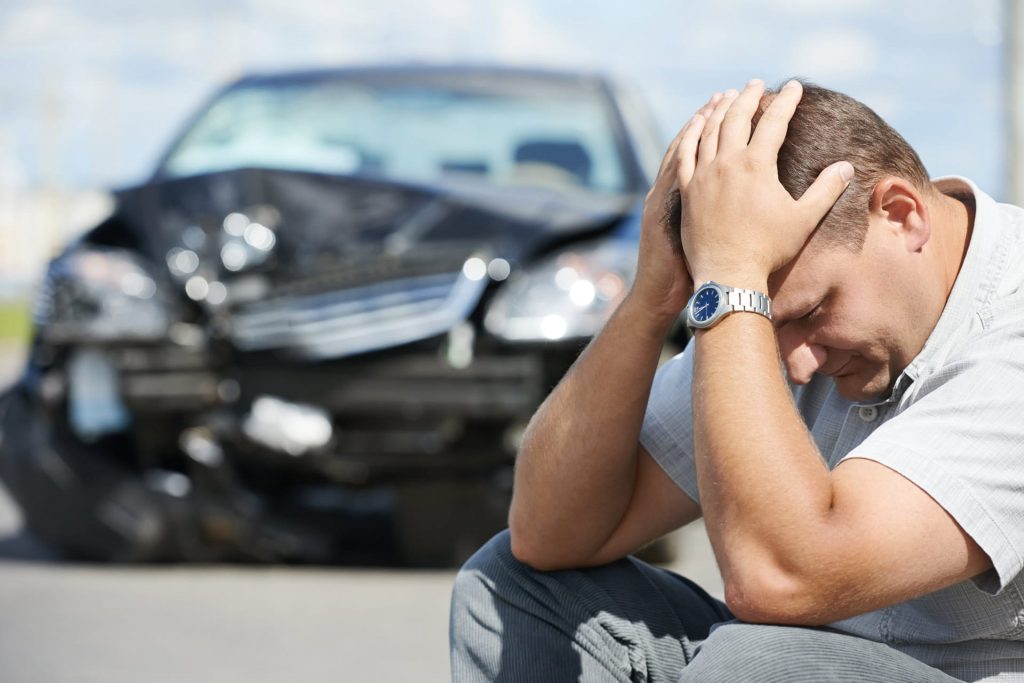It is very common to feel helpless and anxious after an accident. These symptoms can speak to the development of post-traumatic depression. Depression occurs when one feels powerless over upsetting surges of negative emotions. While this involves different emotions for different people, most of those entering rehabilitation services while suffering from post-accident depression report a feeling of agitation and overwhelming sadness after the event. Car accidents and other injury-causing events can be quite shocking to the system, and even after the immediate problems are dealt with – physical treatment is sought, insurance companies are contacted – the burden of the “how” and “what if” can be overwhelming to bear alone.
While this kind of depression is usually temporary and often resulting from momentary fear, the symptoms, if left untreated, can cause emotional, psychological, and physical discomfort that may gradually affect your life as a whole. To prevent post-accident depression from negatively impacting your work, personal relationships, and over-all well-being, it is essential to take rapid treatment measures.
Why Post-Accident Depression Occurs
Studies have shown that sudden spikes in the release of hormones such as adrenaline, can lead to a difficult emotional re-adjustment once the restlessness has faded. It is common for people to be unable to sleep after an accident, either because of hormonal imbalances or plain shock. Worries may come crumbling through and disturb your appetite, energy levels, and sleeping patterns. Inability to function normally or think clearly, coupled with possible nightmares and flashbacks, can lead to feelings of anger, irritability, or worthlessness. These feelings can also cause the following physical symptoms:
- Migraines
- Muscle tension
- Nausea and/or diarrhea
- Fatigue
- Dry mouth
- Constant pupil dilation
- Palpitations or racing heart
Treating Post-Accident Depression
The first step to treating your depression is to understand what forces shape your feelings. Is your sadness caused by shame? Are you agitated due to guilt? Are you unable to sleep because you are scared? A thorough review, either on your own or with a professional, is important in knowing what you need to move forward. Post-accident depression shows itself in different ways depending on the person, and each form of depression requires its own specific treatment.
Treating Anxiety
- Symptoms of anxiety may include:
- Irrational worries
- Nervousness
- Intense fear of specific objects or situations
- A desire to isolate oneself
- Feelings of a loss of control
- Avoidance of distressing thoughts
- Sleep disturbances
One of the most effective ways of treating anxiety is to examine its roots. Talking to family, friends, or a therapist about your feelings, specific thoughts, and situations that cause your nervousness and how you currently cope with it can help you normalize the problem. Self-imposed negative feelings about the causes of your anxiety only make it worse. Facing your fears and worries head-on leads to acceptance and the realization that the problem may not be as bad as you think.
Treating Guilt or Shame
It is natural for most adults to wonder what they “could have done better” after an accident occurs. They will blame themselves for failing to prevent whatever injury was caused to themselves or to others. Simple exercises such as compiling a list of all other factors leading to the accident may be beneficial. Repeating the list to yourself before sleeping, prior to meditation or when getting ready in the morning, will help you accept that some things are not in your control and it is pointless to have unrealistic expectations of yourself.
Treating Anger
Anger can be part of the uncomfortable aftermath of the denial most people experience after an accident. Blaming other things and people can cause overwhelming frustration that may lead to bouts of aggression. The following tips have been shown to lower anger levels and encourage acceptance:
- Prayer
- Meditation
- Vigorous exercise such as karate or boxing
- Yoga
- House cleaning
- Writing, drawing, and other creative activities
- Seeking counseling
What You Must Also Consider
Some accidents have unfortunate consequences that must be addressed in the aftermath. While taking care of yourself emotionally is essential, this can prove difficult if you have not dealt with some of the issues that may have resulted. If other people were injured in the accident, follow-up actions, such as talking to their parents if they are minors or visiting them at the hospital, may help relieve your feelings of sadness or guilt. There may also be legal considerations, so consult a professional before you do this.
Should your feelings of depression persist, do not hesitate to contact a professional for treatment if you have not already done so.
By Kathryn Morris, Lifestyle Blogger
If you or someone you know experiences mental health issues, it is important to seek help from a qualified professional. Our Resource Specialist can help you find expert mental health resources to recover in your community. Contact us now for more information on this free service to our users.
Author Bio: Kathryn writes articles about various health and lifestyle topics. In this article, she discusses ways to deal with post-accident depression. This article is based on experience and research from one of the UK’s leading legal medical companies Speed Medical.
The opinions and views expressed in this guest blog do not necessarily reflect those of www.rtor.org or its sponsor, Laurel House, Inc. The author and www.rtor.org have no affiliations with any products or services mentioned in this article or linked to herein.





